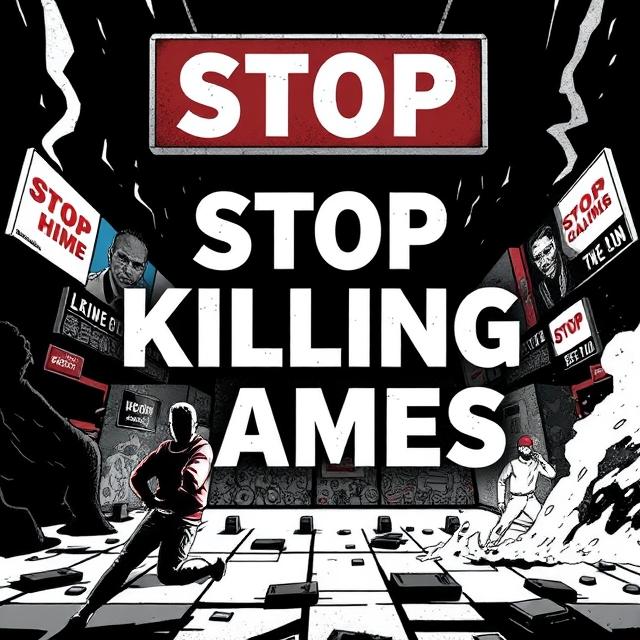Stop Killing Games: Why We Need to Preserve Gaming History
What is “Stop Killing Games”?
“Stop Killing Games” is a grassroots movement that advocates for the preservation of video games, emphasizing the need to keep them accessible to players even after the end of their commercial lifecycle. Led by gamers, developers, and preservationists, it gained popularity through campaigns led by YouTuber Ross Scott after Ubisoft The Crew closed in 2024.
The movement argues that games, like other art forms such as books, films, or music, deserve to be preserved for future generations. It challenges practices such as server shutdowns, always-online requirements, and digital-only releases that make games unplayable once support ends.
The campaign calls for legal and industry reforms to ensure that games remain accessible through offline modes, community servers, or open-source solutions. It also opposes the notion that games are disposable products, emphasizing their cultural and historical significance.
Why Gaming History Matters
Video games are more than entertainment; they are a vital part of modern culture. Since the 1970s, games such as Pong, Super Mario Bros. and The Legend of Zelda have shaped technology, art and storytelling. They reflect social values, technological advancements and creative milestones.
For example, Doom (1993) revolutionised game design with its 3D graphics, while The Sims (2000) explored social dynamics in unprecedented ways. Losing access to these games erases pieces of cultural history, much like burning books or discarding classic films.
Preserving games also has educational value. Game design students, historians, and researchers study older titles to understand the evolution of mechanics, narratives, and technology. Games like Myst or Half-Life provide insight into how developers pushed technological limits and influenced modern titles. Without access, future generations lose these learning opportunities.
The Problem: Why Games Are “Killed”
Games become unplayable for a variety of reasons, often tied to business decisions or technological changes:
Server Shutdowns: Many modern games, especially multiplayer or always-online games such as The Crew or Destiny, rely on servers maintained by publishers. When these servers are shut down to reduce costs, the game becomes unplayable, even for single-player mode. For example, The Crew was deemed unplayable after Ubisoft shut down its servers in 2024, even if players had purchased the game.
Digital-only releases: Digital storefronts such as Steam, PlayStation Network or Xbox Live dominate game distribution. If a game is delisted due to licensing issues, publisher decisions or platform closures, players can no longer download or play it. The 2023 delisting of P.T., a playable teaser for the cancelled Silent Hills game, is a notable example.
DRM and always-online requirements: Digital rights management (DRM) systems, which prevent piracy, often require online authentication. If the authentication servers go offline, even single-player games become unplayable. Assassin’s Creed II initially suffered from this problem until cracked versions bypassed the DRM.
Physical media obsolescence: Older games on cartridges or discs can become defective, and the hardware to play them (e.g., PlayStation 2, Sega Genesis) becomes rare. Without emulation or re-releases, these games tend to disappear.
The Consequences of Losing Games
When games “end,” the impact goes far beyond players. Entire genres, like the early 2000s MMO (Asheron’s Call), risk disappearing, leaving gaps in gaming’s historical record. The loss affects developers who draw inspiration from past titles, researchers who study interactive media, and fans who want to revisit their favorite experiences. It also undermines consumer rights — players who have paid for games lose access through no fault of their own, raising ethical questions about ownership in the digital age.
Furthermore, the cultural loss is deeper. Games like Shenmue or EarthBound were once special, but have since been recognized as masterpieces. If these were lost to server shutdowns or delistings, their influence on modern gaming would be lost.
The Role of the Community
Players are at the center of this movement. Petitions, social media campaigns (e.g., #Stop Killing Games on X), and boycotts of anti-consumer practices amplify this message. Developers can also advocate for conservation-friendly design, such as avoiding always-online DRM. Collaboration between players, developers, and policymakers is vital to bring about change.
Share this content:

Post Comment